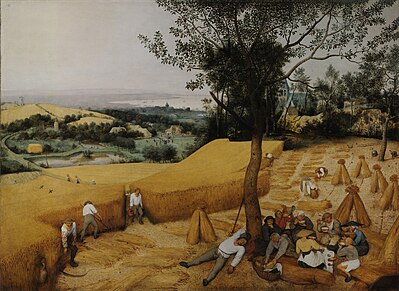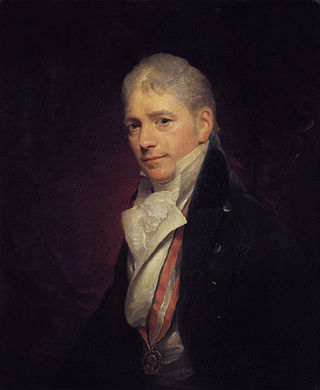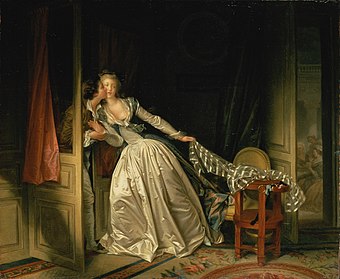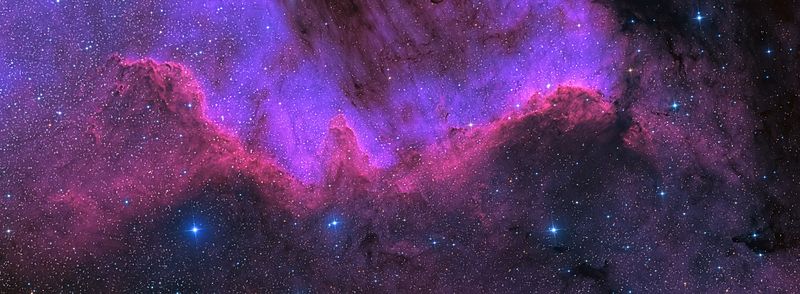|
Featured picture tools: |
These featured pictures, as scheduled below, appeared as the picture of the day (POTD) on the English Wikipedia's Main Page in February 2019. Individual sections for each day on this page can be linked to with the day number as the anchor name (e.g. [[Wikipedia:Picture of the day/February 2019#1]] for February 1).
You can add an automatically updating POTD template to your user page using {{Pic of the day}} (version with blurb) or {{POTD}} (version without blurb). For instructions on how to make custom POTD layouts, see Wikipedia:Picture of the day.
February 1

|
Hester C. Jeffrey (c. 1842 - January 2, 1934) was an African American activist, suffragist, and community organizer. She was a national organizer for the National Association of Colored Women's Clubs (NACWC), and helped create African-American women's clubs for such purposes as women's suffrage, helping women with small children, and to raise money for young black women to take classes at what later became the Rochester Institute of Technology. She also worked for the Political Equality Club, the Woman's Christian Temperance Union, and served on the Douglass Monument Committee. Jeffrey was friends with Susan B. Anthony and was often seen at Anthony's home in Rochester, and was the only layperson to give a eulogy at her funeral service in 1906. Unknown photographer, restored by Adam Cuerden
Recently featured:
|
February 2
|
The Groundhog Day Blizzard was a powerful winter storm which affected parts of the United States and Canada between January 31 and February 2, 2011. The storm brought cold air, heavy snowfall, blowing snow, and mixed precipitation on a path from New Mexico and northern Texas to New England and Eastern Canada. The heaviest snowfall was in Antioch, Illinois, with 27.0 in (69 cm), while Cashtown, Pennsylvania, had the largest ice accretion of 1.0 in (2.5 cm). The storm caused at least 36 deaths, and damages of US$1.8 billion. Video: NASA Earth Observatory
Recently featured:
|
February 3

|
The Harvesters is an oil painting on wood completed by Pieter Bruegel the Elder in 1565. It was commissioned by Nicolaes Jonghelinck, a merchant banker and art collector from Antwerp. Depicting the harvest, in July, August or late summer, the painting is one in a series of six works representing different times of the year. As in many of his paintings, the focus is on peasants and their work and does not have the religious themes common in landscape works of the time. The painting is in the permanent collection of the Metropolitan Museum of Art in New York City, which has described it as a "watershed in the history of Western art". Painting: Pieter Bruegel the Elder
Recently featured:
|
February 4

|
The Monument to Nicholas I is a bronze equestrian monument of Tsar Nicholas I of Russia located in Saint Isaac's Square in Saint Petersburg, Russia. Created by French sculptor Auguste de Montferrand and unveiled in 1859, the statue was considered a technical wonder at the time of its creation and is one of only a few bronze statues with just two support points (the rear hooves of the horse). Photograph: Godot13
Recently featured:
|
February 5

|
Francis Bourgeois (1753–1811) was a British landscape and history painter, and court painter to King George III of the United Kingdom. In the late 18th century he became an art dealer and collector in association with Frenchman Noel Desenfans. The pair were commissioned by Polish king Stanisław August Poniatowski to compile a collection of paintings, which they spent five years doing, but Stanisław's exile in 1795 meant the contract could not be completed and they were left with a large art collection. Bourgeois outlived Desenfans and bequeathed them to Dulwich College with an additional £2000 to build a permanent building, which became the Dulwich Picture Gallery, England's first purpose-built public art gallery. This portrait of Bourgeois was painted by William Beechey (1753–1839) and hangs in the National Portrait Gallery, London. Painting: William Beechey
Recently featured:
|
February 6

|
A 1919 banknote of the short-lived Yugoslav krone currency, which replaced the Austro-Hungarian krone at par in 1918 and was used for a few years alongside the Yugoslav dinar in the Kingdom of Serbs, Croats, and Slovenes. This picture shows a 400 kronen note which is overprinted on a 100 dinara note. Banknote: National Numismatic Collection, National Museum of American History, Smithsonian Institution. Image: Godot13.
Recently featured:
|
February 7

|
Minggu Pagi (Indonesian for Sunday Morning) is a general interest weekly published by the Yogyakarta-based Kedaulatan Rakyat Group. The magazine was established on 7 December 1948 and switched to a tabloid-format newspaper in the 1980s. This magazine cover, published 65 years ago today, features a photo of the actress Lies Noor. Born c. 1938, Noor was rapidly becoming a popular actress when this photo was published in 1954. During her career, she appeared in a number of films including Rajuan Alam (1956) and Pedjuang (1960). Noor died in 1961 of encephalitis at the age of 23. Uncredited. Restored by Chris Woodrich
Recently featured:
|
February 8

|
|
Panoramic view of the Amphitheatre of El Jem, an archeological site in the city of El Djem, Tunisia. The amphitheatre, one of the best-preserved Roman ruins and a UNESCO World Heritage Site since 1979, was built around 238 AD, when modern Tunisia belonged to the Roman province of Africa. It is the third-biggest amphitheatre in the world, with axes of 148 m (486 ft) and 122 m (400 ft) and a seating capacity of 35,000, unique in Africa. Photograph: Poco a poco
Recently featured:
|
February 9

|
The Embarkation for Cythera is a painting by the French artist Jean-Antoine Watteau, who submitted this work to the Royal Academy of Painting and Sculpture as his reception piece in 1717. It portrays a fête galante, an amorous celebration enjoyed by the French aristocracy during the Régence. Such romantic themes are reflected in the title; Cythera was thought to be the birthplace of the Greek goddess of love, Aphrodite. The painting is now in the Louvre in Paris. Painting: Jean-Antoine Watteau
Recently featured:
|
February 10
Subpage 1

|
The Temple Church is a church in the City of London located between Fleet Street and the River Thames, built by the Knights Templar as their English headquarters. It was consecrated on 10 February 1185 by Patriarch Heraclius of Jerusalem. It is a round church, a common design feature for Knights Templar churches, and is now jointly owned by the Inner Temple and Middle Temple Inns of Court, bases of the English legal profession. The surrounding area, known as Temple, is named after the church. This is a photograph looking east through the circular nave and the chancel towards the altar. Other images: chancel · altar · organ Photograph: Diliff
Recently featured:
|
Subpage 2

|
The Temple Church is a church in the City of London located between Fleet Street and the River Thames, built by the Knights Templar as their English headquarters. It was consecrated on 10 February 1185 by Patriarch Heraclius of Jerusalem. It is a round church, a common design feature for Knights Templar churches, and is now jointly owned by the Inner Temple and Middle Temple Inns of Court, bases of the English legal profession. The surrounding area, known as Temple, is named after the church. This is a photograph looking west from the altar, through the chancel towards the circular nave. Other images: nave · altar · organ Photograph: Diliff
Recently featured:
|
Subpage 3

|
The Temple Church is a church in the City of London located between Fleet Street and the River Thames, built by the Knights Templar as their English headquarters. It was consecrated on 10 February 1185 by Patriarch Heraclius of Jerusalem. It is a round church, a common design feature for Knights Templar churches, and is now jointly owned by the Inner Temple and Middle Temple Inns of Court, bases of the English legal profession. The surrounding area, known as Temple, is named after the church. This is a photograph looking east from the chancel towards the altar. Other images: nave · chancel · organ Photograph: Diliff
Recently featured:
|
Subpage 4

|
The Temple Church is a church in the City of London located between Fleet Street and the River Thames, built by the Knights Templar as their English headquarters. It was consecrated on 10 February 1185 by Patriarch Heraclius of Jerusalem. It is a round church, a common design feature for Knights Templar churches, and is now jointly owned by the Inner Temple and Middle Temple Inns of Court, bases of the English legal profession. The surrounding area, known as Temple, is named after the church. This photograph shows the four manual Harrison & Harrison organ, built in 1924 as a private ballroom organ at Glen Tanar Castle and installed at the Temple Church in 1954. Other images: nave · chancel · altar Photograph: Diliff
Recently featured:
|
February 11

|
The common black hawk (Buteogallus anthracinus) is a bird of prey in the family Accipitridae, which also includes the eagles, hawks, and Old World vultures. The mangrove black hawk, traditionally thought to be a distinct species, is now generally considered a subspecies, B. a. subtilis, of the common black hawk. This picture shows a bird of the Buteogallus anthracinus gundlachii subspecies, in Cuba. Photograph: Charles J. Sharp
Recently featured:
|
February 12

|
Abraham Lincoln (February 12, 1809 – April 15, 1865) was an American lawyer and politician who served as the 16th president of the United States from 1861 until his assassination in April 1865. Lincoln led the nation through the Civil War, its bloodiest war and its greatest moral, constitutional, and political crisis. Born in Kentucky into a poor family, Lincoln educated himself and worked as a lawyer in Illinois before entering politics. A powerful orator and astute politician, Lincoln used his Gettysburg Address to promote nationalism, republicanism, equal rights, liberty, and democracy. He has been consistently ranked as one of the greatest US presidents, by both scholars and the public. Engraving: Bureau of Engraving and Printing; restoration: Andrew Shiva
Recently featured:
|
February 13

|
Diana and Endymion is an oil-on-canvas painting by Francesco Solimena, produced between 1705 and 1710. The painting depicts the Roman goddess Diana, one of the twelve Gods and Goddesses of Olympus, falling in love with Endymion, a symbol of timeless beauty. Diana and Endymion is part of the last period of Solimena's works when he mainly concentrated on mythological subjects. He developed this interest in mythological stories while inspired by the Arcadian movement embracing classical culture. The painting is in the collection of the National Museums Liverpool. Painting: Francesco Solimena
Recently featured:
|
February 14

|
Flowers of the plant Lantana camara with a crab spider waiting in ambush for prey. Part of the family Verbenaceae, L. camara is native to South and Central America and is now found across the world. It is often planted indoors or in a conservatory but can also be used in a garden if it has sufficient shelter. In some areas it has become an invasive species, affecting agricultural areas as a result of its toxicity to livestock and an ability to form dense thickets. Photograph: Joaquim Alves Gaspar
Recently featured:
|
February 15

|
An image of Queen Christina of Sweden (1626–1689) on a 10-ducat coin from the German state of Erfurt. The only surviving legitimate child of King Gustav II Adolph and his wife Maria Eleonora of Brandenburg, Christina became queen at the age of six, upon her father's death at the Battle of Lützen in 1632. She abdicated in 1654 when she converted to Roman Catholicism, becoming a symbol of the Counter-Reformation. Her image appeared on Erfurt coinage as a result of the state's occupation by Swedish forces between 1631 and 1648, during the Thirty Years War. Seven gold coins are known to exist bearing the effigy of Queen Christina: a unique 1649 5-ducat, and six 1645 10-ducat specimens. Image credit: National Numismatic Collection and National Museum of American History
Recently featured:
|
February 16

|
Tennis player Annika Beck (born 16 February 1994 in Giessen, Germany) playing a shot during the 2015 Wimbledon qualifying tournament. She turned professional in 2009 and retired in 2018. During her career she won two singles titles and one doubles title on the WTA Tour, including the 2014 Luxembourg Open, as well as seven singles titles on the ITF Women's Circuit. Photograph: David Iliff
Recently featured:
|
February 17

|
Liguus virgineus, also known as the candy cane snail, is a species of snail in the family Orthalicidae. It is native to the Caribbean island of Hispaniola, in the nations of Haiti and the Dominican Republic. There have also been at least three reports of living specimens being found in the Florida Keys of the United States. The snail lives on trees and feeds on moss, fungi and microscopic algae covering the bark. Photograph: H. Zell
Recently featured:
|
February 18

|
Ida Husted Harper (February 18, 1851 – March 14, 1931) was an American author, journalist, columnist, and suffragist. She was the chosen biographer of Susan B. Anthony, with whom she also worked on the six-volume History of Woman Suffrage. Harper served as secretary of the Indiana chapter of the National Woman Suffrage Association, became a prominent figure in the women's suffrage movement in the U.S., and wrote columns on women's issues for numerous newspapers across the United States. She traveled extensively, delivered lectures in support of women’s rights, handled press relations for a women's suffrage amendment in California, headed the National American Woman Suffrage Association's national press bureau in New York City, and chaired the press committee of the International Council of Women. Photograph: Aimé Dupont Studio, restored by Adam Cuerden
Recently featured:
|
February 19

|
The internment of Japanese Americans in the United States during World War II was the forced relocation and incarceration in concentration camps in the western interior of the country of between 110,000 and 120,000 people of Japanese ancestry, most of whom lived on the Pacific coast. Sixty-two percent of the internees were United States citizens. These actions were ordered by President Franklin D. Roosevelt shortly after Imperial Japan's attack on Pearl Harbor. This picture shows members of the Mochida family in Hayward, California, waiting for an evacuation bus to take them to an internment center. Photograph: Dorothea Lange; Restoration: Bammesk
Recently featured:
|
February 20

|
The Stolen Kiss is a painting by French painter Jean-Honoré Fragonard created in the late 1780s. Painted in a style characteristic of the French Rococo period, it depicts a passionate kiss between two lovers. The composition is diagonal, made up by an axis composed through her leaning figure, the shawl and the balcony door opening from the outside, ending with the table the shawl is draped over. The painting is hosted in the collection of the Hermitage Museum in Saint Petersburg. Painting: Jean-Honoré Fragonard
Recently featured:
|
February 21

|
Papilio machaon, also known as the Old World swallowtail, is a butterfly of the family Papilionidae. It is present throughout the entire Palearctic region, ranging from western Europe and Russia to China and Japan, including the Himalayas and Taiwan, across into Alaska, Canada, and the United States, and as far south as Saudi Arabia and Oman. The adult butterfly typically has yellow wings with black vein markings, and a wingspan of 65–86 millimetres (2.6–3.4 in). The hindwing has a pair of protruding tails, similar to that of a swallow, and just below each tail is one red and six blue eyespots. In the caterpillar stage, P. machaon has a length of 45 millimetres (1.8 in) and resembles a bird dropping, giving it camouflage. Photograph: Zeynel Cebeci
Recently featured:
|
February 22

|
Albert Reiss (22 February 1870 – 19 June 1940) was a German operatic tenor who had a prolific career in Europe and the United States during the first third of the twentieth century. He spent much of his career performing at the Metropolitan Opera in New York City where he sang in more than 1,000 performances, including several premieres, between 1901 and 1919. Excelling in the tenor buffo repertoire, Reiss was particularly associated with the roles of David in Richard Wagner's Die Meistersinger von Nürnberg and Mime in Der Ring des Nibelungen, two roles he sang in numerous houses internationally. Photograph: Bain News Service
Recently featured:
|
February 23

|
Cardiss Collins (1931–2013) was an American politician from Illinois who served in the United States House of Representatives from 1973 to 1997. A member of the Democratic Party, she was the fourth African-American woman in Congress and the first to represent a Midwestern state. Collins had previously worked as an accountant in various state government positions. She was elected to Congress in a special election to fill the seat left vacant by her husband, George W. Collins (1925–1972), who had died in the United Airlines Flight 553 plane crash. She was re-elected to the seat eleven times but did not seek a thirteenth term. At different times during her almost 24-year tenure in Congress, Collins served as chairwoman of several committees and as president and later vice chair of the Congressional Black Caucus. U.S. Congress. Restored by Adam Cuerden
Recently featured:
|
February 24

|
|
Lancashire is a county in the north west of England. Founded in 1182, Lancashire emerged as a major commercial and industrial region during the Industrial Revolution. Liverpool and Manchester grew into its largest cities, with economies built around the docks and the cotton mills respectively. The county's borders were redrawn significantly in 1974, as the urban regions around Liverpool and Manchester were removed to form the counties of Merseyside and Greater Manchester and the northern part became part of Cumbria. This picture, titled The Countie Pallatine of Lancaster Described and Divided into Hundreds, 1610, is a map of Lancashire engraved in around 1627 by John Speed. It features a street plan of the county town, Lancaster, and side panels containing portraits of kings from the House of Lancaster and the House of York. Engraving: John Speed; restoration: Adam Cuerden
Recently featured:
|
February 25

|
An original Xbox One home video game console with a controller and a Kinect motion-sensing input device. XBox One is a line of eighth generation consoles developed by Microsoft. It was released in 2013 as the third console in the Xbox family and successor to the Xbox 360. The name of the consoles reflects Microsoft's marketing of the device as an all-in-one entertainment system. The Xbox One line competes against consoles such as Sony's PlayStation 4 and Nintendo's Wii U and Switch. Photograph: Evan Amos
Recently featured:
|
February 26

|
|
The North America Nebula (NGC 7000 or Caldwell 20) is an emission nebula in the constellation Cygnus. The remarkable shape of the nebula resembles that of the continent of North America, complete with a prominent Gulf of Mexico. The portion of the nebula shown, resembling Mexico and Central America, is known as the Cygnus Wall. Photograph: Ken Crawford
Recently featured:
|
February 27

|
Hou Yifan (Chinese: 侯逸凡; pinyin: Hóu Yìfán; born 27 February 1994) is a Chinese chess grandmaster and four-time Women's World Chess Champion. A chess prodigy, she is the youngest female player ever to qualify for the title of grandmaster and the youngest ever to win the Women's World Chess Championship. Photograph: Andreas Kontokanis
Recently featured:
|
February 28

|
The Maroon Bells are a pair of peaks in the Elk Mountains of Colorado, United States, close to the town of Aspen. The two peaks are separated by around 500 meters (one-third of a mile). Maroon Peak is the higher of the two, with an altitude of 14,163 feet (4317.0 m), and North Maroon Peak rises to 14,019 feet (4273.0 m), making them both fourteeners. The Maroon Bells are a popular tourist destination for day and overnight visitors, with around 300,000 visitors every season. Photograph: Rhododendrites
Recently featured:
|
Picture of the day archives and future dates